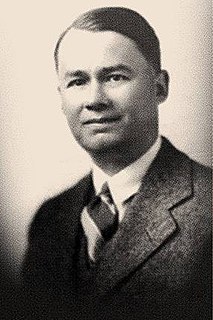A Quote by David Hume
Battles, revolutions, pestilence, famine, and death, are never the effect of those natural causes, which we experience. Prodigies,omens, oracles, judgments, quite obscure the few natural events, that are intermingled with them. But as the former grow thinner every pagewe soon learn, that there is nothing mysterious or supernatural in the case, but that all proceeds from the usual propensity of mankind towards the marvellous, and that, though this inclination may at intervals receive a check from sense and learning, it can never be thoroughly extirpated.
Quote Topics
Battles
Case
Causes
Check
Death
Effect
Events
Every
Experience
Famine
Few
Former
Grow
Inclination
Intervals
Judgments
Learn
Learning
Mankind
Marvellous
May
Mysterious
Natural
Never
Nothing
Obscure
Oracles
Pestilence
Prodigies
Propensity
Quite
Receive
Revolutions
Sense
Soon
Supernatural
Them
Thinner
Thoroughly
Those
Though
Towards
Usual
Which
Related Quotes
The many instances of forged miracles, and prophecies, and supernatural events, which, in all ages, have either been detected by contrary evidence, or which detect themselves by their absurdity, prove sufficiently the strong propensity of mankind to the extraordinary and marvellous, and ought reasonably to begat a suspicion against all relations of this kind.
There is an universal tendency among mankind to conceive all beings like themselves, and to transfer to every object, those qualities, with which they are familiarly acquainted, and of which they are intimately conscious. We find human faces in the moon, armies in the clouds; and by a natural propensity, if not corrected by experience and reflection, ascribe malice or good-will to every thing, that hurts or pleases us.
Human stories are practically always about one thing, really, aren't they? Death. The inevitability of death. . . . . . (quoting an obituary) 'There is no such thing as a natural death. Nothing that ever happens to man is natural, since his presence calls the whole world into question. All men must die, but for every man his death is an accident, and even if he knows it he would sense to it an unjustifiable violation.' Well, you may agree with the words or not, but those are the key spring of The Lord Of The Rings
We see that God has implanted in all things a natural desire to exist with the fullest measure of existence that is compatible with their particular nature. To this end they are endowed with suitable faculties and activities; and by means of these there is in them a discernment that is natural and in keeping with the purpose of their knowledge, which ensures their natural inclination serving its purpose and being able to reach its fulfilment in that object towards which it is attracted by the weight of its own nature.
Famine was quite deliberately employed as an instrument of national policy, as the last means of breaking the resistance of the peasantry to the new system where they are divorced from personal ownership of the land and obligated to work on the conditions which the state may demand from them... This famine may fairly be called political because it was not the result of any overwhelming natural catastrophe or such complete exhaustions of the country's resources in foreign and civil wars.
It seems evident that everything which exists in nature, is natural, no matter how simple or complicated a phenomenon it is; and on no occasion can the so-called 'supernatural' be anything else than a completely natural law, though it may, at the moment, be above and beyond the present understanding.
It is one thing to say that science is only equipped to test for natural causes and cannot speak to any others. It is quite another to insist that science proves that no other causes could possibly exist. . . . There would be no experimental model for testing the statement: 'No supernatural cause for any natural phenomenon is possible.' It is therefore a philosophical presupposition and not a scientific finding.
The great end of prudence is to give cheerfulness to those hours which splendour cannot gild, and acclamation cannot exhilarate; those soft intervals of unbended amusement, in which a man shrinks to his natural dimensions, and throws aside the ornaments or disguises which he feels in privacy to be useless incumbrances, and to lose all effect when they become familiar. To be happy at home is the ultimate result of all ambition, the end to which every enterprise and labour tends, and of which every desire prompts the prosecution.
Natural Magick is taken to be nothing else, but the chief power of all the natural Sciences; which therefore they call the top and perfection of Natural Philosophy, and which is indeed the active part of the same; which by the assistance of natural forces and faculties, through their mutual & opportune application, performs those things that are above Human Reason.
Extinction has only separated groups: it has by no means made them; for if every form which has ever lived on this earth were suddenly to reappear, though it would be quite impossible to give definitions by which each group could be distinguished from other groups, as all would blend together by steps as fine as those between the finest existing varieties, nevertheless a natural classification, or at least a natural arrangement, would be possible.
And in these four things, opinion of ghosts , ignorance of second causes, devotion towards what men fear , and taking of things casual for prognostics , consisteth the natural seed of religion ; which by reason of the different fancies, judgments and passions of several men, has grown up into ceremonies so different, that those which are used by one man, are for the most part ridiculous to another.
How this feels is I'm just another task in God's daily planner: The Renaissance pencilled in for right after the Dark Ages. The Information Age is scheduled immediately after the Industrial Revolution. Then the Post-Modern Era, then The Four Horsemen of the Apocalypse. Famine. Check. Pestilence. Check. War. Check. Death. Check. And between the big events, the earthquakes and tidal waves, God's got me squeezed in for a cameo appearance. Then maybe in thirty years, or maybe next year, God's daily planner has me finished.







































